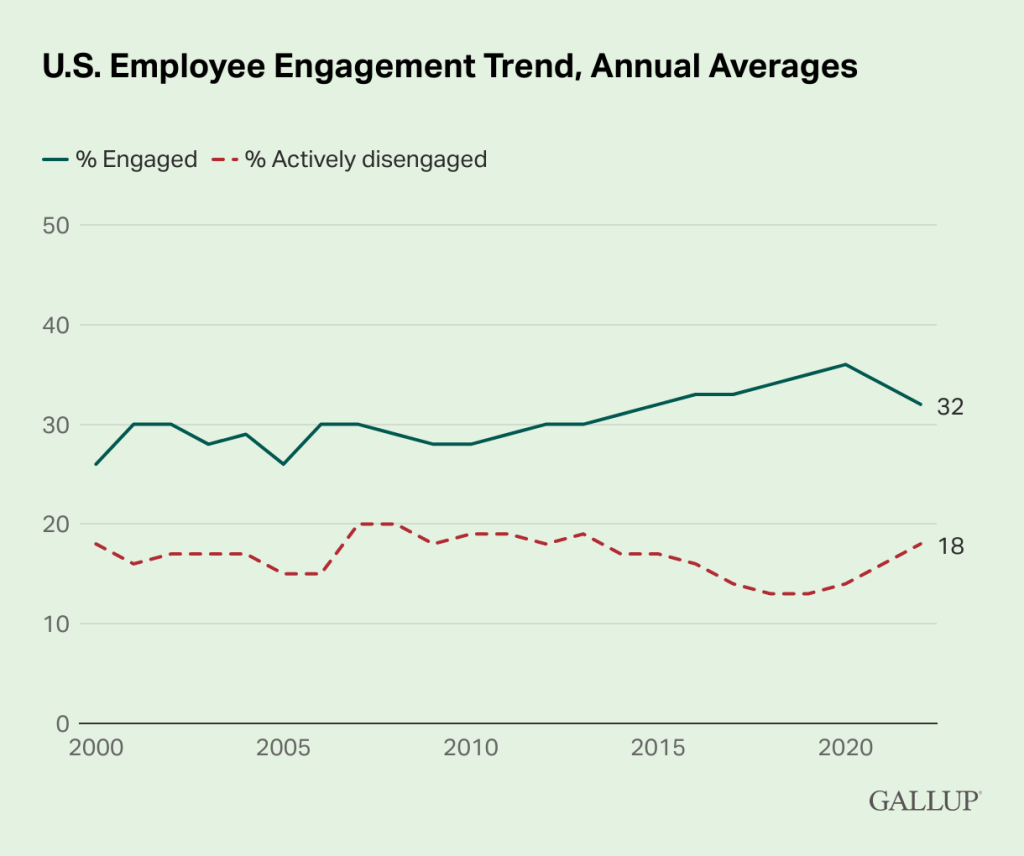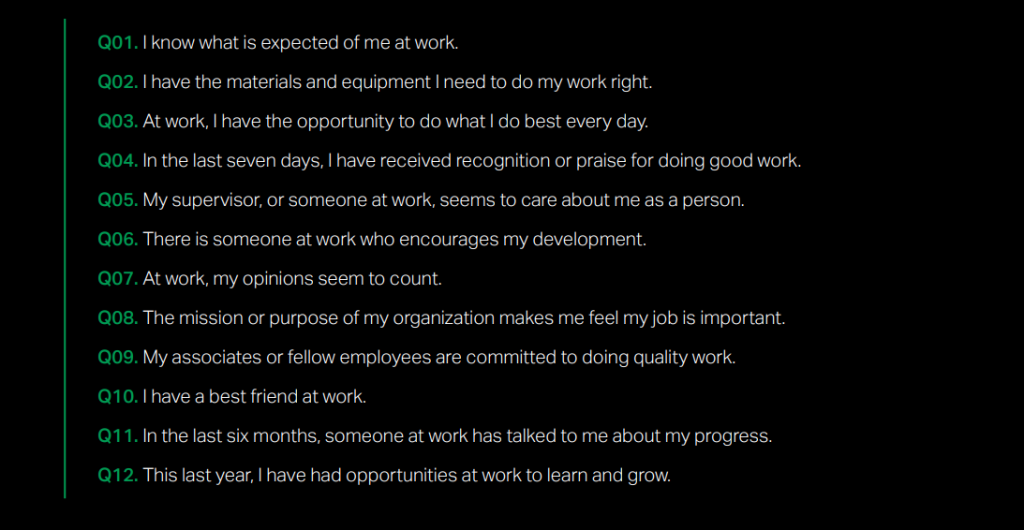Top 10 essential leadership skills for managers for 2023
The top 10 in-demand job skills for 2025 list reported by World Economic Forum (WEF) is outdated.
There are new job skills employers are looking for and we present them in this article.
The world is changing at a breakneck pace. New technologies are disrupting industries, different generations with different values are working together in the same office and people are using new ways to communicate and express themselves.
The workplace is not the same as it was two years ago, let alone five or ten. Leadership and people management are today at a crossroads (see our piece on quiet quitting) and the skills employers are looking for in new hires are changing almost every year.
That’s why we believe the list of top 10 in-demand job skills for 2025 that the World Economic Forum published two years ago needs updating.
The Top 10 in-demand job Skills for 2025 Before the Great Resignation
Every year, the World Economic Forum publishes the Future of Jobs report which showcases various highly useful statistics and data including the top skills required for jobs five years in the future.
Here are the WEF’s recommendations for 2025:
- Analytical thinking and innovation
- Active learning and learning strategies
- Complex problem solving
- Critical thinking and analysis
- Creativity, originality and initiative
- Leadership and social influence
- Technology use, monitoring and control
- Technology design and programming
- Resilience, stress tolerance and flexibility
- Reasoning, problem-solving and ideation
The problem with the latest report of the forum is that it was published before the Great Resignation and its impact on the global workforce, which began in early 2021. It’s 2022 and the business environment is struggling with a new trend: Quiet Quitting.
Both the Great Resignation and Quiet Quitting are symptoms of the same problem: lack of good leadership.
It’s not that before the pandemic employees didn’t have leadership. They had. But in today’s world, a world of work-from-home, work-from-everywhere, with a healthier work-life balance, a new type of leadership is required.
The type of leadership Future of Work Strategy Expert @London Business School and BRAND MINDS 2023 speaker Lynda Gratton writes about in her article for Harvard Business Review, Managers can’t do it all.
The Top 10 essential leadership skills for 2023 after the Great Resignation + Quiet Quitting, for Managers
What are employees looking for in their job roles?
Values alignment. Millennials and Generation Z are now the largest segments in the workplace. What countless surveys and reports have found was that the members of both generations are seeking jobs in mission-driven companies whose values align with their own. When companies fail to live up to their own values and the employees’ expectations, the employees will take it to the street with protests and call-outs. And I give just two examples: the Google walkouts in 2018, and more recently, the pressure employees and customers have put on brands still doing business in Russia.
Flexible work schedules. Millennials with families expect their jobs to provide them with a healthy work-life balance where they can spend quality time with their children and spouses. Nearly 1 in 5 Gen Z’ers want to run their own business, and the vast majority of them have one pet hobby they would like to nurture and manage so flexible work schedules are important for them too.
Professional Growth & Development Opportunities. No one wants to do the same job for years and then retire. Employees want to grow as professionals and advance in their careers. They expect employers to provide them with on-site training or offer a training allowance they can use to develop their skills further. According to LinkedIn statistics, Gen Z learners watched 50% more hours of educational content on LinkedIn. Improve my skills to improve your company.
Opinion heard and Initiative welcomed. There is no bigger satisfaction than working in an environment where your opinion is heard, your input is valued and you are expected and encouraged to improve how the company is doing email marketing, or customer service or product design. When you see how your work contributes to the organization’s larger purpose, it’s the best feeling.
What skills are managers expected to acquire or develop?
Performance development. Managers need to shift from performance management to performance development. It’s not enough to monitor and assess performance, they need to support employees in developing their skills which leads to increased performance.
Communication, Empathy and emotional support. Gallup recommends that managers have one meaningful conversation per week with each team member — 15-30 minutes. They found this helps employees reduce disengagement and burnout.
S-curve employee learning management. The S learning curve strategy is a great framework to build a winning team and a highly efficient tool for employee development. This framework is the essence of professional development for employees at every stage of their careers. The manager identifies any skills gap the employee needs to close.
Diversity and inclusion management. Generation Z is the most diverse generation we have ever seen. Managing and nurturing the development of these workers needs to align with the company’s business goals and the development needs of other generations working together in the same office.
Top 10 essential leadership skills for managers for 2023, BRAND MINDS edition
- Performance development
- Peer-to-peer and team coaching
- S-learning curve management
- Communication, Empathy and emotional support
- Employee growth culture
- Engagement and retaining
- Retraining and career coaching
- Diversity and inclusion support
- Skills gap anticipation
- Agility

Your employees are quiet quitting. How to stop quiet quitting in your company.
Gallup: Globally, 79% of employees are either not engaged or are actively disengaged at work
I’m sure you’ve heard the term quiet quitting by now, it has been popping out in the media and on our social media feeds since the beginning of this year’s summer.
On TikTok especially there are over 140 million views of #quietquitting videos at the time of writing.
Quiet quitting refers to employees doing the work that is in their job description and not going above and beyond for their employer as they have done previously.

The various meanings of quiet quitting
Some creators are talking about “Act your wage, ” a slogan that has been gaining momentum lately. It’s a creative wordplay that links the lack of going above and beyond to the amount written on the paycheck. It’s worth noting that managers are quiet quitting too with only 1 in 3 managers being engaged at work (source).
Other creators explain the quiet quitting trend by rejecting burnout, finding a healthy work/life balance and saying that they are no longer “subscribing to the hustle culture mentality that work has to be your life”.
Survey reports show that this trend has been growing especially among Gen-Z employees with polls on LinkedIn showing that quiet quitting is a strong indicator for employees eventually leaving the company and joining the Great Resignation, the trend that’s been sweeping the world for the past two years.
In my opinion, quiet quitting takes on different meanings depending on the industry and the job’s specifics. For some professionals, it’s not about staying late, working weekends or taking on work that is not in their job descriptions – unpaid work. This is not what is happening.
How ‘quiet quitting’ is hurting employers
It’s about losing the enthusiasm of being part of a greater mission, of knowing your work has a higher meaning and your contribution is appreciated. It’s about not offering solutions, not taking the initiative and coming up with fresh ideas on how to achieve business goals.
It’s about being passive and a Yes man. It’s about giving up and not caring if the business fails or succeeds. And it’s more dangerous for the employer because creativity and innovation stem from being proactive and saying what if we do this or I’ve been thinking about a new way to delight our customers or the x trend is coming, we need to prepare for it or I have an amazing idea for our next marketing campaign.
When you hear crickets at the next team meeting, know that your employees are quiet quitting and you are in the middle of a burning house.
But there’s still time to put out the fire.

Why quiet quitting is especially high among Gen Z employees and why employers should pay attention
The latest piece on quiet quitting doing the rounds on social media is this opinion article where the author says employees are not ‘quite quitting’, they are in fact working and suggests we use a new term: work for grown-ups.
The author says that both employers and employees should see the job as a “contractual relationship of mutual respect and clearly defined obligations “ and nothing more. And that employers shouldn’t concern themselves with whether or not employees “love them”, their work has a purpose, and all they need to know in terms of engagement is if they think their work is harming their health if they have a “decent line manager” and if they think they’re paid fairly.
My thoughts reading this were that the author is oblivious to key traits of employees in Gen Z who will make up 27% of the workforce by 2025 in OECD countries.
And also that we’re soooo past “decent line manager”. It’s not the 80s anymore!
I’ll mention just 3 traits influencing Gen Z’s outlook on work-life:
![]() They want to work for a company that fits their values
They want to work for a company that fits their values![]() Work-life balance and diversity in the workplace are paramount
Work-life balance and diversity in the workplace are paramount![]() They are expecting opportunities to learn and grow from the employer
They are expecting opportunities to learn and grow from the employer
Gen Z is influencing the future of work for everyone in the workforce (Are you concerned about how the future of work influences your workforce? Check this out!).
Now replace “loving” the company with having shared values, “harming their health” with having a healthy work/life balance and the “decent line manager” with a manager actively invested in their professional growth and we have a view closer to reality as employers.
How to stop quiet quitting in your company
The solution is to raise engagement.
HRs have been traditionally tasked with employee engagement.
Among Gallup’s findings shared in its 2022 report on employee engagement, one fact stands out:
Employee engagement is not HR’s job; it’s the manager’s.
Because the manager assigns the tasks to team members and knows the workload of every one of them, what are their strengths, what are they struggling with at work and their life outside of work.
The cause and the solution of quiet quitting is leadership. It’s time for people leading people.
How should managers nurture and maintain employee engagement?
Through ongoing coaching conversations with employees.
Here are Gallup’s recommendations:
![]() Managers must see engagement as one of their primary responsibilities;
Managers must see engagement as one of their primary responsibilities;![]() Managers must have one meaningful conversation per week with each team member — 15-30 minutes, to help employees reduce disengagement and burnout;
Managers must have one meaningful conversation per week with each team member — 15-30 minutes, to help employees reduce disengagement and burnout;![]() Employees must see how their work contributes to the organization’s larger purpose;
Employees must see how their work contributes to the organization’s larger purpose;![]() Managers need to create accountability for individual performance, team collaboration and customer value.
Managers need to create accountability for individual performance, team collaboration and customer value.
Gallup: 12 elements of employee engagement that predict high team performance in critical business outcomes including retention, productivity, safety, sales and revenue

Future of Work Strategy Expert @London Business School LYNDA GRATTON: Focus on your managers
Lynda Gratton is an award-winning Professor of Management Practice at the London Business School.
She designed the ‘Human Resource Strategy in Transforming Companies’ programme and has since led it for over 20 years. The programme is considered one of the world’s leading programmes on people and organisations.
Lynda Gratton has chaired the World Economic Forum Council on Leadership and is currently co-chair of the World Economic Forum Global Future Council on Work, Wages and Job Creation.
In her latest article for Harvard Business Review published in the March-April 2022 issue of the magazine, she stated the following findings:
![]() 75% of employees reported that the most stressful aspect of their jobs was their immediate boss
75% of employees reported that the most stressful aspect of their jobs was their immediate boss![]() weekly one-to-ones with managers during uncertain times have amazing results:
weekly one-to-ones with managers during uncertain times have amazing results:
54% increase in engagement,
31% increase in productivity,
15% decrease in burnout,
16% decrease in depression among employees
As the saying goes, people join companies and leave their managers.{…} Having good relationships with their managers is the top factor in employees’ job satisfaction, which in turn is the second-most-important determinant of their overall well-being.
Lynda Gratton
Managers’ role needs to change from traditional, performance management, to what today’s and tomorrow’s workforce needs, performance development.
Are you an employer? Now is the time to develop your managers’ leadership skills!
BRAND MINDS 2023 is the best business event for your managers.
Your team leaders will learn new strategies to grow employee retention and engagement from Future of Work Strategy Expert Lynda Gratton.
Human Resources managers who have sent their managers and teams to past editions of BRAND MINDS have noticed a significant increase in employee engagement and motivation.
The participants’ feedback is that BRAND MINDS is a great reward for their hard work and the acknowledgement that their employer cares for their professional growth and development.